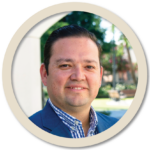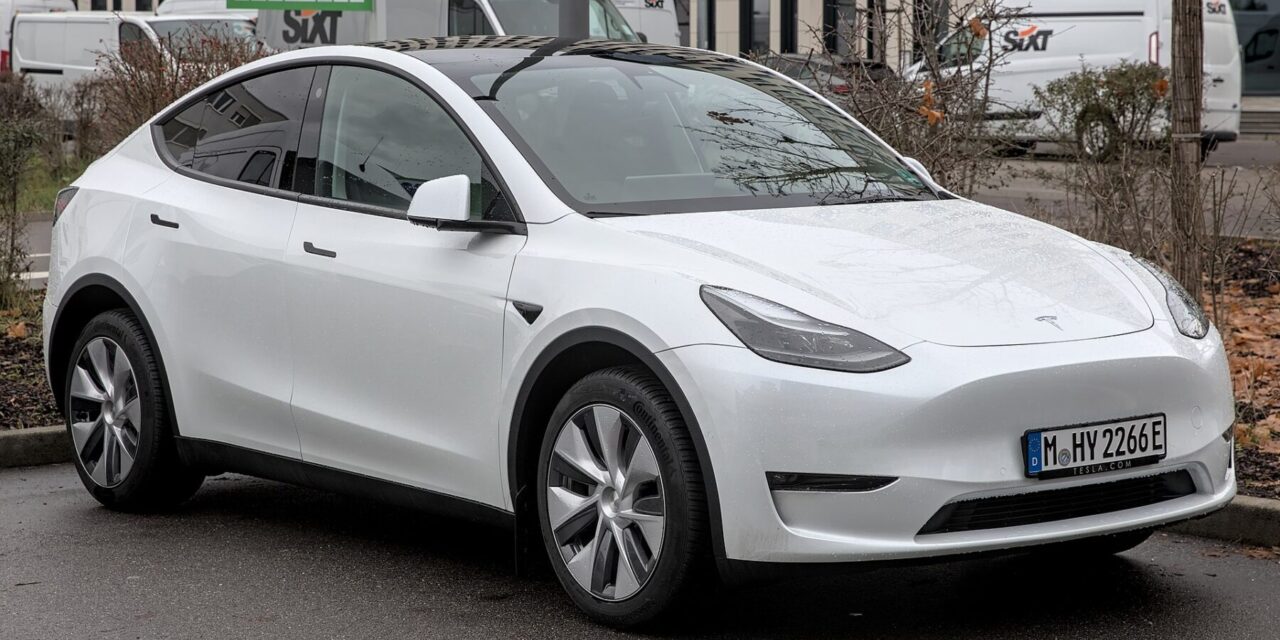Tesla Y models each have a 7-passenger capacity.
COACHELLA — This agriculture-based community of about 42,000 people, which is 97% Hispanic, is the first Coachella Valley community to offer a fleet of 17 Tesla Y models to transport farmworker families to their essential appointments, work, college and other needs.

Mayor Steven Hernandez
“Everyone’s going to be able to use it,” Mayor Steven Hernandez told Uken Report. “Obviously, we think it’s cool because migrant farm workers will be able to use it, and migrant farm workers make up my community.”
The rideshare service is scheduled to start in 2024. Each vehicle will have a 7-person capacity. Rideshare will be available via a mobile app through which residents may request service. It will operate 7 days a week from 8 a.m. to 5 p.m., 365 days a year.
Ridership is anticipated to be approximately 16,224 minimum trips per year.
The vehicles will be pearl white. The interior is black with vegan leather seat trim.
On July 26, the City Council authorized execution of a Rideshare Services Agreement with Latino Equity Advocacy Policy Institute and authorized the city manager to sign the Master Lease Equity Agreement with Enterprise Fleet Management Inc. to buy 17 Tesla Y Models for $1,029,010. The cost of each Tesla Y model is $60,530.
Affordable Housing and Sustainable Communities (“AHSC”) Program grant money will be used to
purchase the 17 Tesla Y models.
In 2020, the city received an Affordable Housing and Sustainable Communities (AHSC) Program grant from the California Department of Housing and Community Development (HCD). One of the commitments the city made was to would provide rideshare services in partnership with the Latino Equity Advocacy and Policy Institute (LEAP Institute).
The Rideshare Services Agreement outlines the rideshare services the LEAP Institute will provide locally and also transfers title/maintenance/liability for the 17 Tesla units, after they are procured, to the LEAP Institute. The ridesharing program will provide for trips throughout the community for a variety of uses including employment, doctor visits, commute to school and will be managed by the LEAP Institute.
LEAP will designate a program manager who will serve as the city’s primary point of contact; rideshare services will be available from an on-demand application. The program manager will also appoint members to the Program Team to handle operations, dispatch, driver onboarding, driver management, fleet maintenance, marketing, and data analytics.
“(It’s) a class-act model for economic, environmental and climate justice to advance community health and empower mobility options and connectivity,” Hernandez said.
“There are a lot of people in our community that think, ‘Oh, this is awesome!”’ Then there’s some people that think, ‘Hey, this is a luxury.’ But it really goes down to the simple fact that as we start transitioning to electric vehicles … it’s going to be important that everybody in the community, irrespective of your income, that you have an opportunity to participate,” Hernandez said.
The California Air Resources Board has approved the trailblazing Advanced Clean Cars II rule that sets California on a path to rapidly growing the zero-emission car, pickup truck and SUV market and deliver cleaner air and massive reductions in climate-warming pollution.
The rule establishes a year-by-year roadmap so that by 2035 100% of new cars and light trucks sold in California will be zero-emission vehicles, including plug-in hybrid electric vehicles. The regulation realizes and codifies the light-duty vehicle goals set out in Governor Newsom’s Executive Order N-79-20.
The AHSC grant used for Coachella’s rideshare program is a portion of the grant that was used in July 2019, when Pueblo Viejo Villas was awarded $8.4 million to help finance much-needed low-income housing. The AHSC program also awarded $6.5 million to the City of Coachella, SunLine Transit Agency, and CalVans for pedestrian, bicycle and transportation improvements. These improvements include a new bus hub directly adjacent to the housing, as well as bike paths and pedestrian walkways connecting the housing to key destinations in downtown Coachella. Pueblo Viejo Villas will achieve California Zero Net Energy and will be a smoke-free community.
The AHSC grants will also help create a new bus hub that will increase mobility options for Coachella Valley residents. With the addition of four buses, SunLine Transit Agency will be able to increase frequency on the fixed route network. In addition, CalVans will purchase and operate 40 vans for vanpools to connect residents and others in the community to employment centers.
Other financing mechanisms for Pueblo Viejo Villas include construction and permanent loans from Citi Community Capital; tax credit equity provided by WNC, Inc.; $1 million in HOME funds administered by the County of Riverside; a $1.1 million Infill Infrastructure Grant from California’s Department of Housing and Community Development; and over $1 million in Community Resource Development funds administered by the California Department of Developmental Services and the Inland Regional Center.
Image Sources
- Tesla Model Y: Shutterstock







